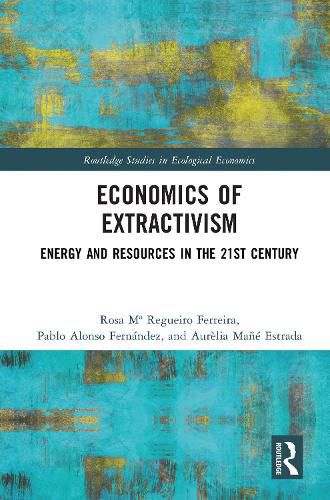Readings Newsletter
Become a Readings Member to make your shopping experience even easier.
Sign in or sign up for free!
You’re not far away from qualifying for FREE standard shipping within Australia
You’ve qualified for FREE standard shipping within Australia
The cart is loading…






Extractivism is an economic model based on the extraction of natural resources for export that is widespread in resource-rich countries. Historically, extractivism was typically used in reference to fossil fuels but in recent decades the drive to find new energy sources has given rise to new dynamics in extractivism. This book identifies and describes these new dynamics and trends in extractivism and explores their effects on the economic development and environmental impact of different countries, to show the potential benefits and limits of renewable energies.
To this end, an introduction and contextualisation of the concept of extractivism in recent decades is provided. This is followed by a detailed description of the various impacts around extractivism of different energy sources throughout the 21st century: fossil fuels, renewables and other sources. Subsequently, the implications of extractivism for economic development, the environment, the energy transition, and the problems and conflicts arising from the relations between extractivist countries and consumers in the field of energy are examined in depth.
This book will be of interest to readers in ecological economics, environmental economics, energy economics, political ecology, and anyone working on energy issues in the social and natural sciences.
$9.00 standard shipping within Australia
FREE standard shipping within Australia for orders over $100.00
Express & International shipping calculated at checkout
Extractivism is an economic model based on the extraction of natural resources for export that is widespread in resource-rich countries. Historically, extractivism was typically used in reference to fossil fuels but in recent decades the drive to find new energy sources has given rise to new dynamics in extractivism. This book identifies and describes these new dynamics and trends in extractivism and explores their effects on the economic development and environmental impact of different countries, to show the potential benefits and limits of renewable energies.
To this end, an introduction and contextualisation of the concept of extractivism in recent decades is provided. This is followed by a detailed description of the various impacts around extractivism of different energy sources throughout the 21st century: fossil fuels, renewables and other sources. Subsequently, the implications of extractivism for economic development, the environment, the energy transition, and the problems and conflicts arising from the relations between extractivist countries and consumers in the field of energy are examined in depth.
This book will be of interest to readers in ecological economics, environmental economics, energy economics, political ecology, and anyone working on energy issues in the social and natural sciences.